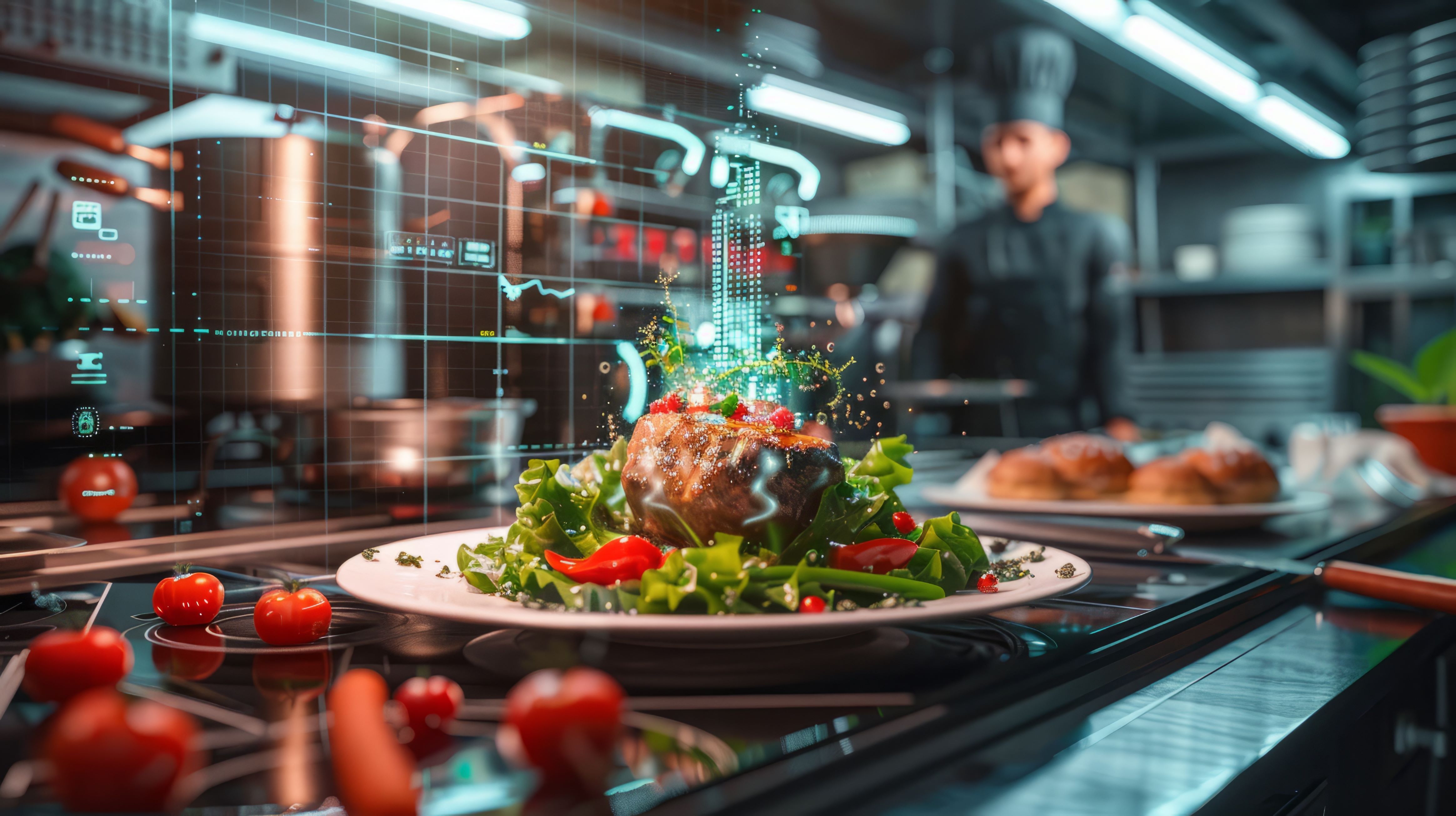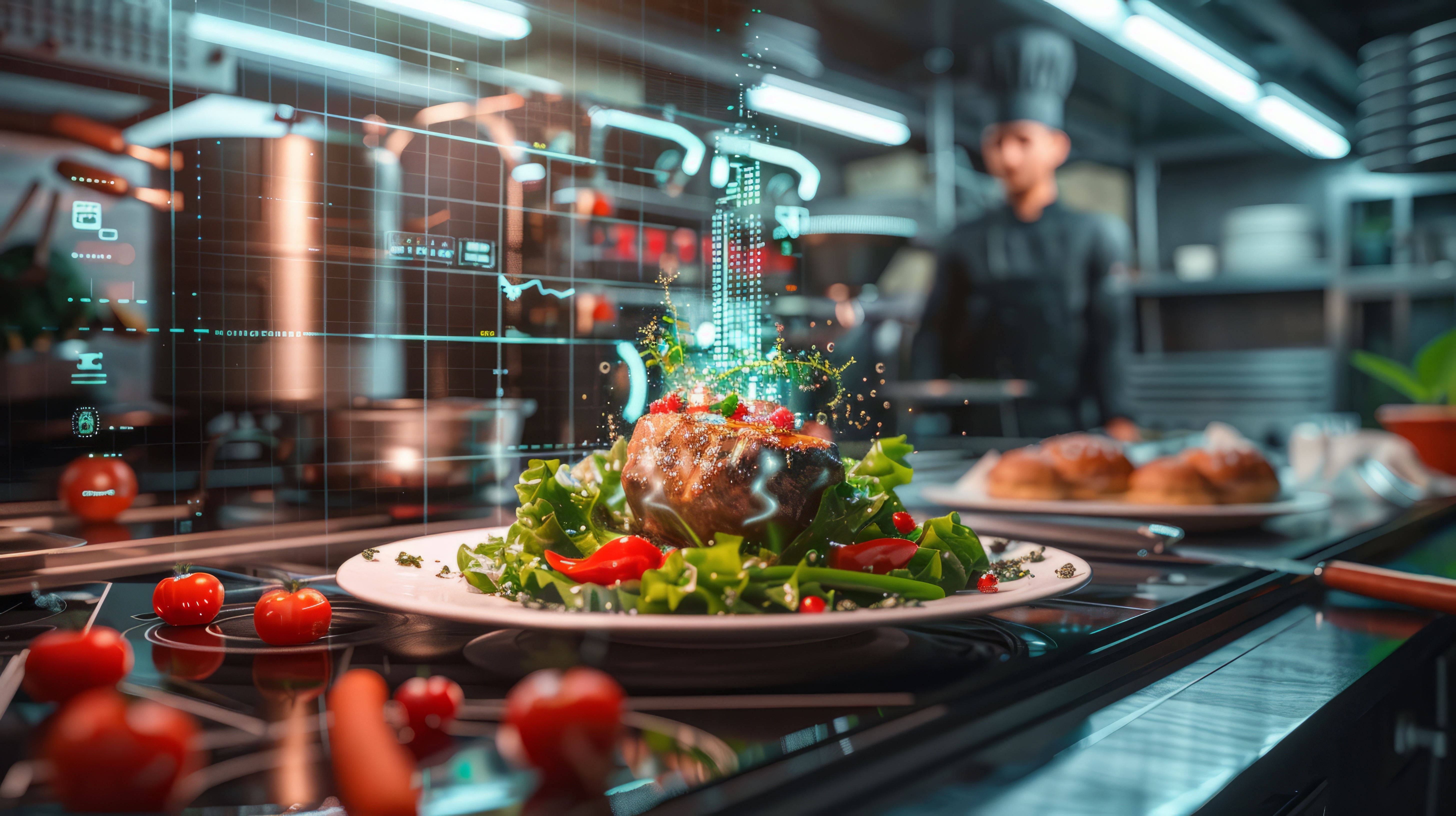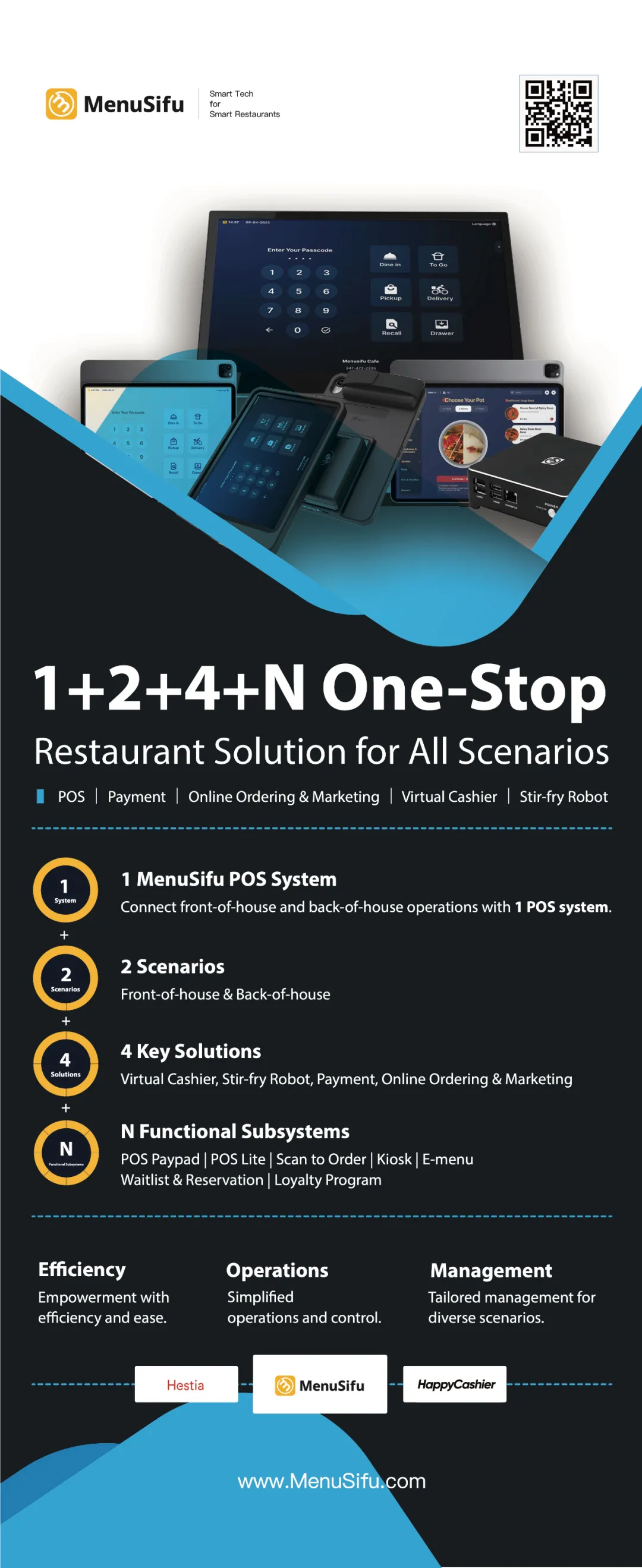January 23, 2026
Enhance your restaurant with artificial intelligence! Optimize operations and elevate customer experience with advanced AI solutions. Start now!

As the dinner rush began, Maria, the owner of a trendy downtown restaurant, found herself reflecting on how much had changed since she first opened her doors. She used to spend hours manually adjusting staff schedules, guessing inventory needs, and trying to predict customer preferences.
But that was before she discovered the power of artificial intelligence in restaurants. Now, AI algorithms predicted her busiest times, ensuring she was never understaffed. Inventory management became a breeze, with AI forecasting demand so accurately that waste was nearly eliminated.
Even customer interactions transformed. Personalized recommendations were generated from AI analysis of customer preferences, turning first-time diners into regulars. Maria’s virtual assistant handled reservations and inquiries, freeing up her staff to focus on creating an exceptional dining experience. Table management was optimized through predictive analytics, minimizing wait times and maximizing turnover rates.

The real game-changer was the data-driven decision-making. AI analyzed sales patterns, weather, and local events to forecast revenue, guiding Maria’s business strategies. Menu optimization became effortless, with AI identifying the most popular dishes and suggesting new recipes that delighted her patrons. As Maria watched her restaurant thrive, she knew embracing artificial intelligence wasn’t just a smart move—it was essential for success in the modern culinary world.
What is Artificial Intelligence( AI )?

When AI is mentioned, many people immediately think of voice assistants on smartphones and the currently popular ChatGPT. Both of these use AI technology to enable systems or machines to simulate human intelligence in solving problems.
AI technology has only been around for a few decades, and it's only in the last 20 years that it has started to be widely used. Currently, AI is still transitioning from Weak AI to Strong AI. Systems can make basic judgments and predictions based on stored data, but achieving truly human-like thinking and complete intelligence will likely take a long time.
AI technology has revolutionized numerous industries by enabling machines to perform tasks that once required human intelligence. From machine learning and deep learning to natural language processing and computer vision, AI systems can analyze vast amounts of data, recognize patterns, and make informed decisions.
In the restaurant industry, AI assists in optimizing inventory management, personalizing customer recommendations, and automating ordering processes, enhancing both efficiency and customer satisfaction. With utilization of advanced AI technology, restaurant operators can now accurately grasp management objectives, understand market trends, and detect subtle changes in customer preferences. This not only allows them to make decisions with greater ease but also aligns restaurant operations more closely with market demands, enhancing customer satisfaction and providing continuous momentum for the restaurant's long-term development. As AI continues to evolve, integrating ethical considerations and IoT connectivity, it promises to further enhance our daily lives and drive innovation across various fields.
AI optimization is essential for restaurants for several key reasons, enhancing operational efficiency, improving customer experience, and driving profitability. Here are the main benefits:

A Restaurant Ecosystem In MenuSifu
MenuSifu is continuously building and improving the dining ecosystem, providing smarter and more efficient solutions for restaurant operations and management. Integrating various product lines and systems, along with rich resources across multiple platforms, MenuSifu has created an innovative "1+2+4+N" comprehensive Artificial Intelligence( AI ) solution for restaurants.
Looking for the best way to navigate new technology? MenuSifu is Here!
